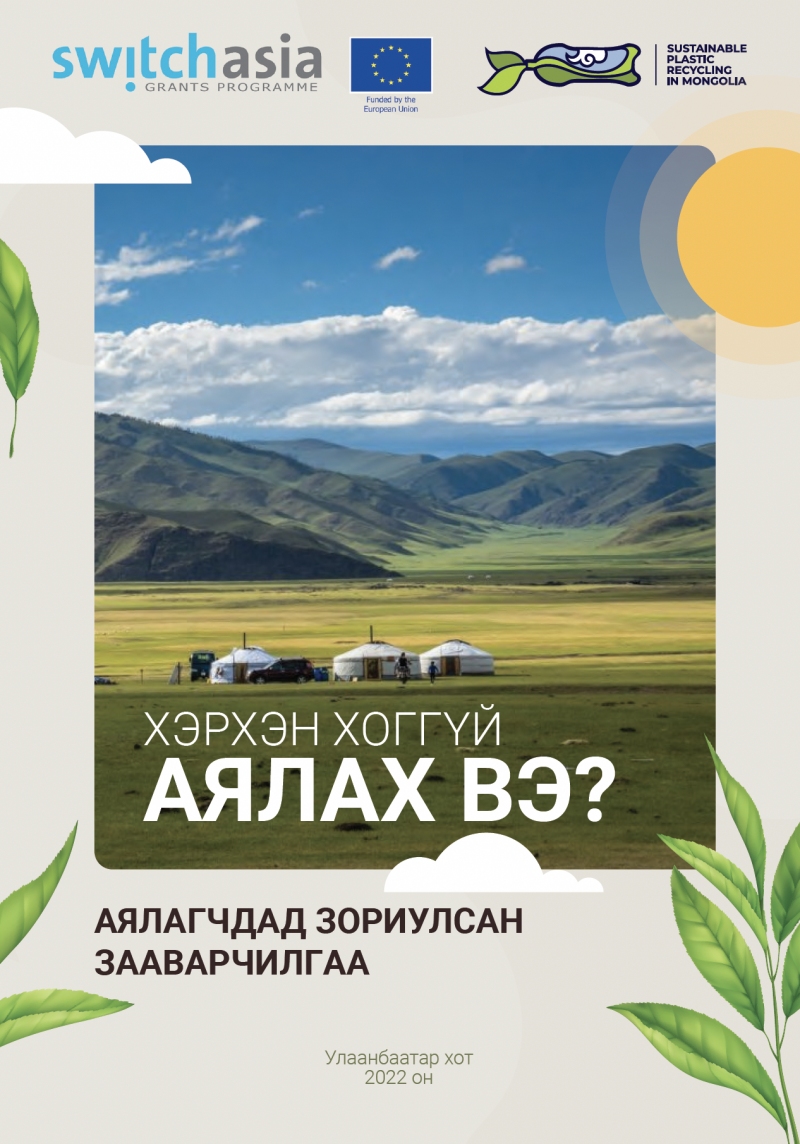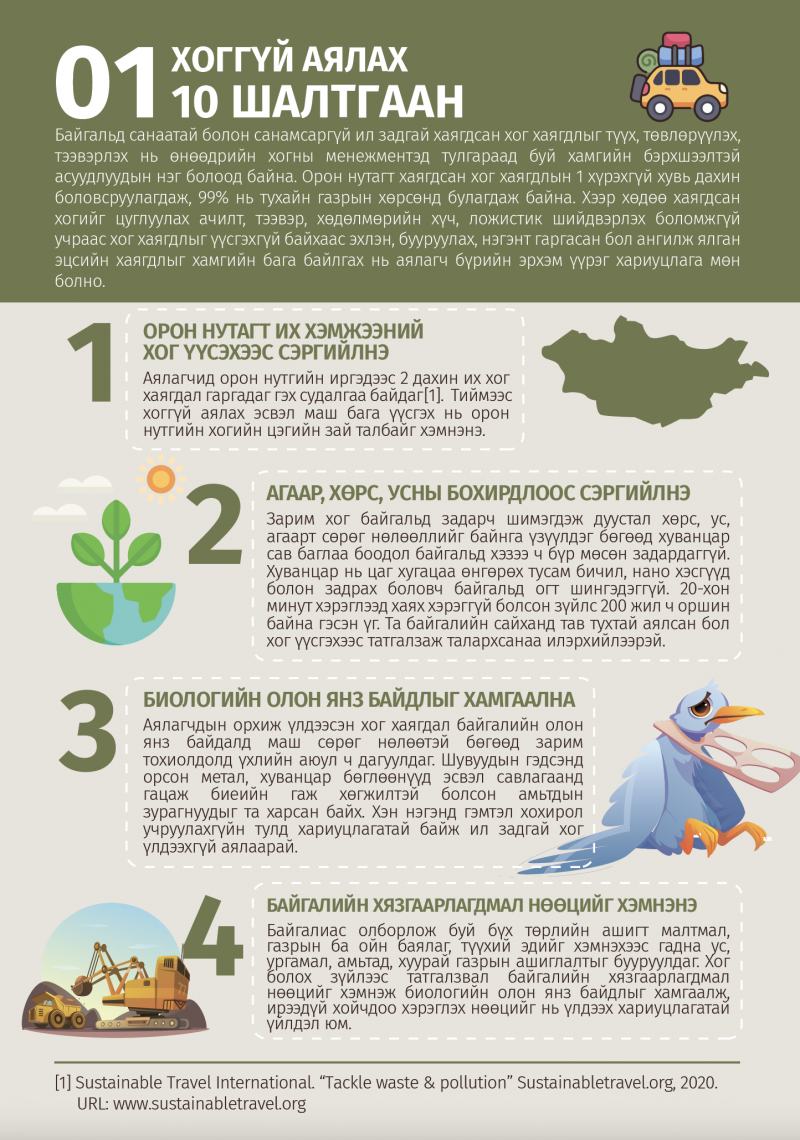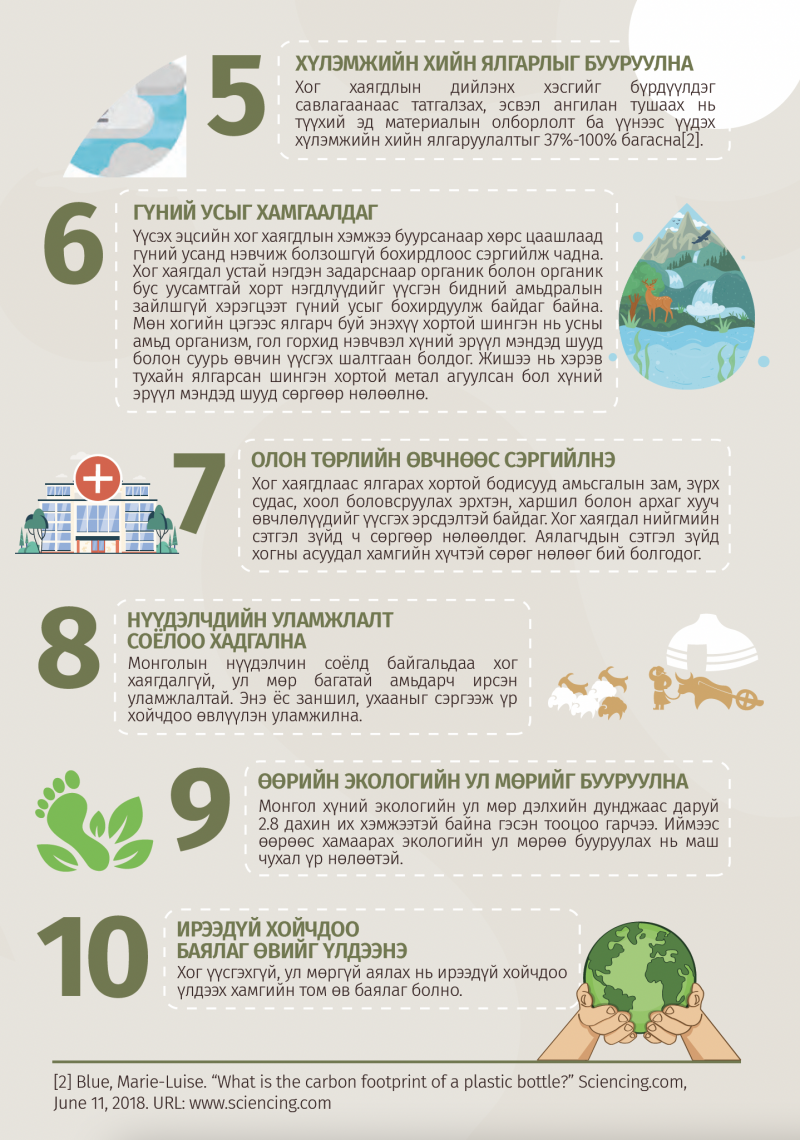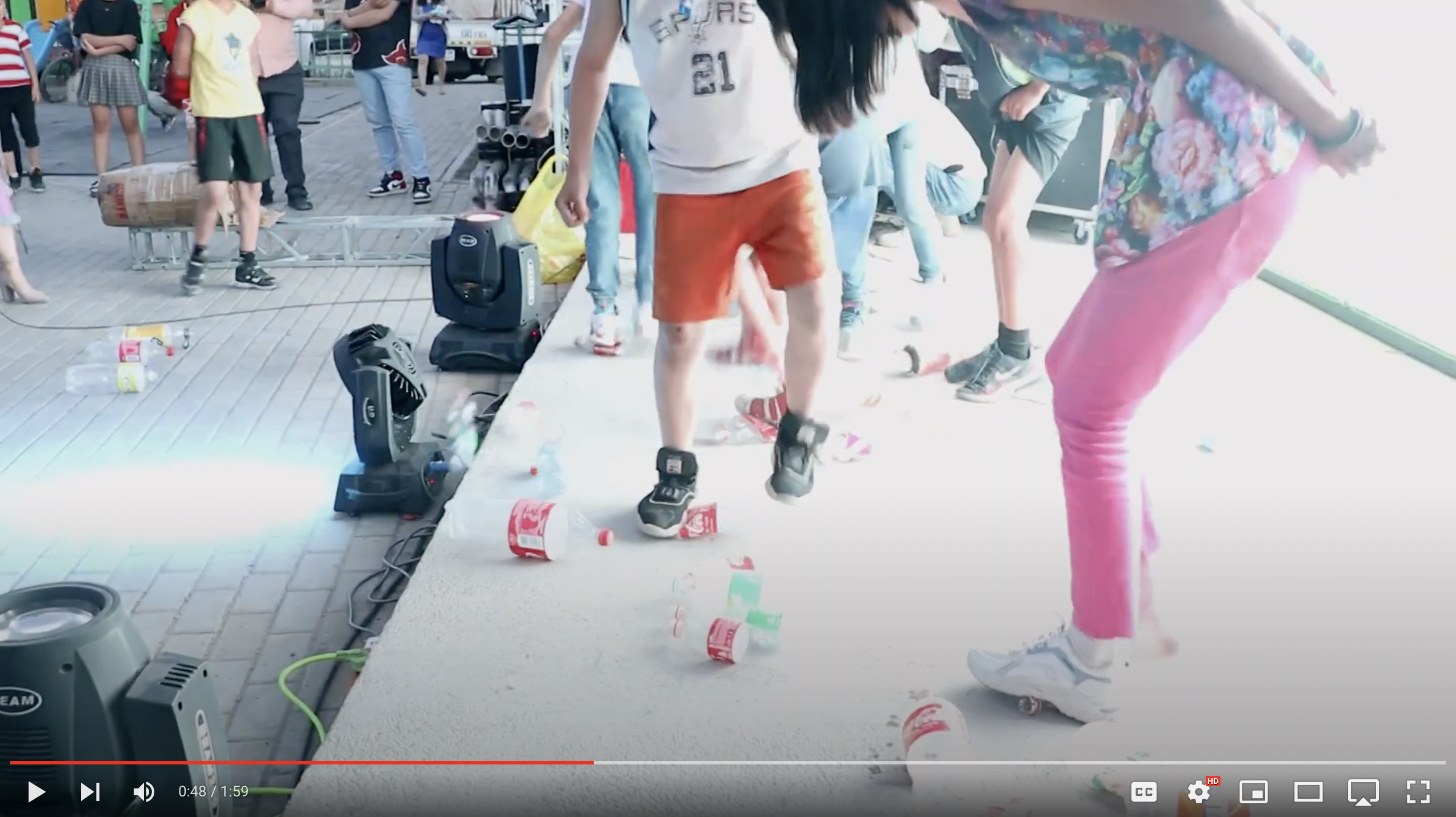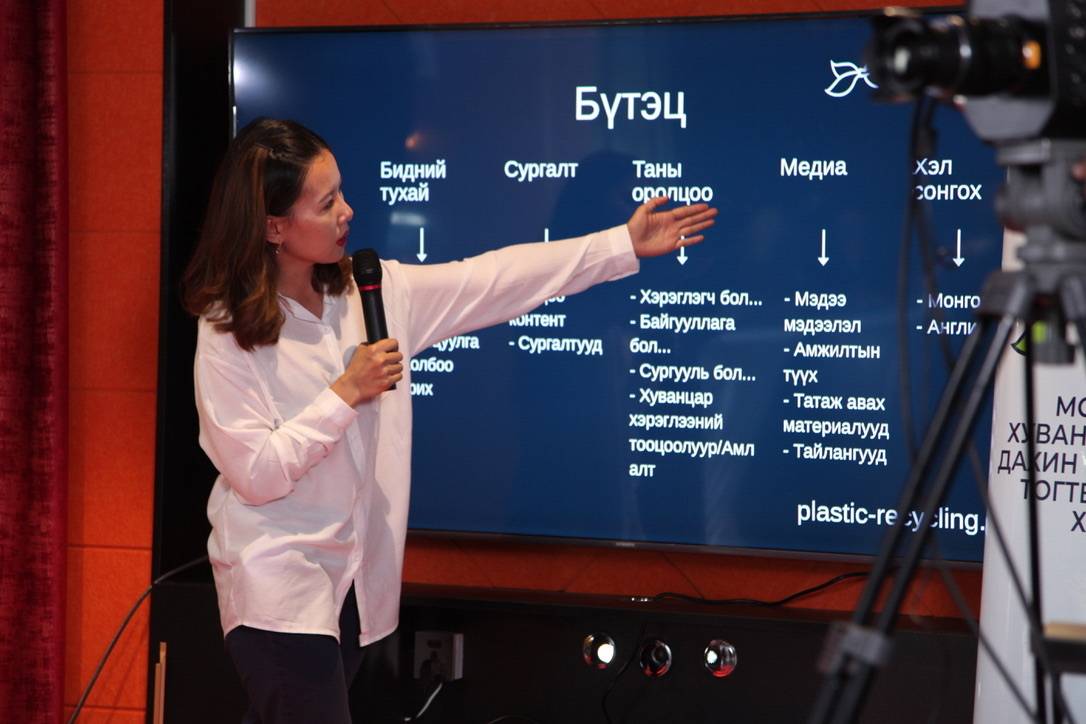
Mongolia is the fourth-most polluted country in the world. The largest source of pollution is the burning of coal in the ger district areas used for heating during freezing winters, followed by the improper disposal of waste. While a new Law on Waste was issued in 2017, sustainable solutions have yet to be found and implemented.
The EU funded SWITCH-Asia SPRIM project implemented by Caritas Czech Republic is in line with the national Waste Management Strategy and Action Plan, which highlights the necessity of ensuring sound management of solid waste, promoting conservation and efficient use of resources, striving for environmentally-sound technologies and approaches, driving behavioural change of the public towards the adoption of the 3R principles, and raising social responsibility of citizens and businesses, among otherstakeholders.
Earlier in July, SPRIM partner Mongolian Sustainable Development Bridge (MSDB) has developed and launched a new platform to increase public awareness of waste collection, segregation and recycling. The website contains data and information on plastic waste, various training materials and pedagogical video tutorials tackling the topic of waste management. Targeted audiences in this initiative include: individuals, organisations, and secondary educational institutions. As part of the "Friendly neighbours" campaign, a short video on how to sort waste was also created to provide information about the environment and waste to residents in selected khoroos.
Watch the Video
This initiative is of utmost importance in Mongolia, a country where in 2020, the total amount of municipal solid waste generated and collected by licensed transportation entities amounted to 2.4 million tonnes, with an increase of 13% since 2019. Although more than 90% of waste is recyclable, only less than 10% of it is being recycled. People generally dispose their waste at their building dumpsite, which is ultimately incinerated.
If people segregate their wastes at home and have them regularly delivered to the collection point, the total volume of waste will be reduced. Through this platform, we aim to switch people’s behaviour on responsible waste management practices, providing relevant information on how to sort waste at the source, explained Mijidsuren Chimeddorj, Project Manager of the Sustainable Plastic Recycling in Mongolia project.
As part of the SPRIM project, the Mongolian Sustainable Development Bridge NGO also developed the Guidelines on "How to travel without waste?" (these will also be available in English).
